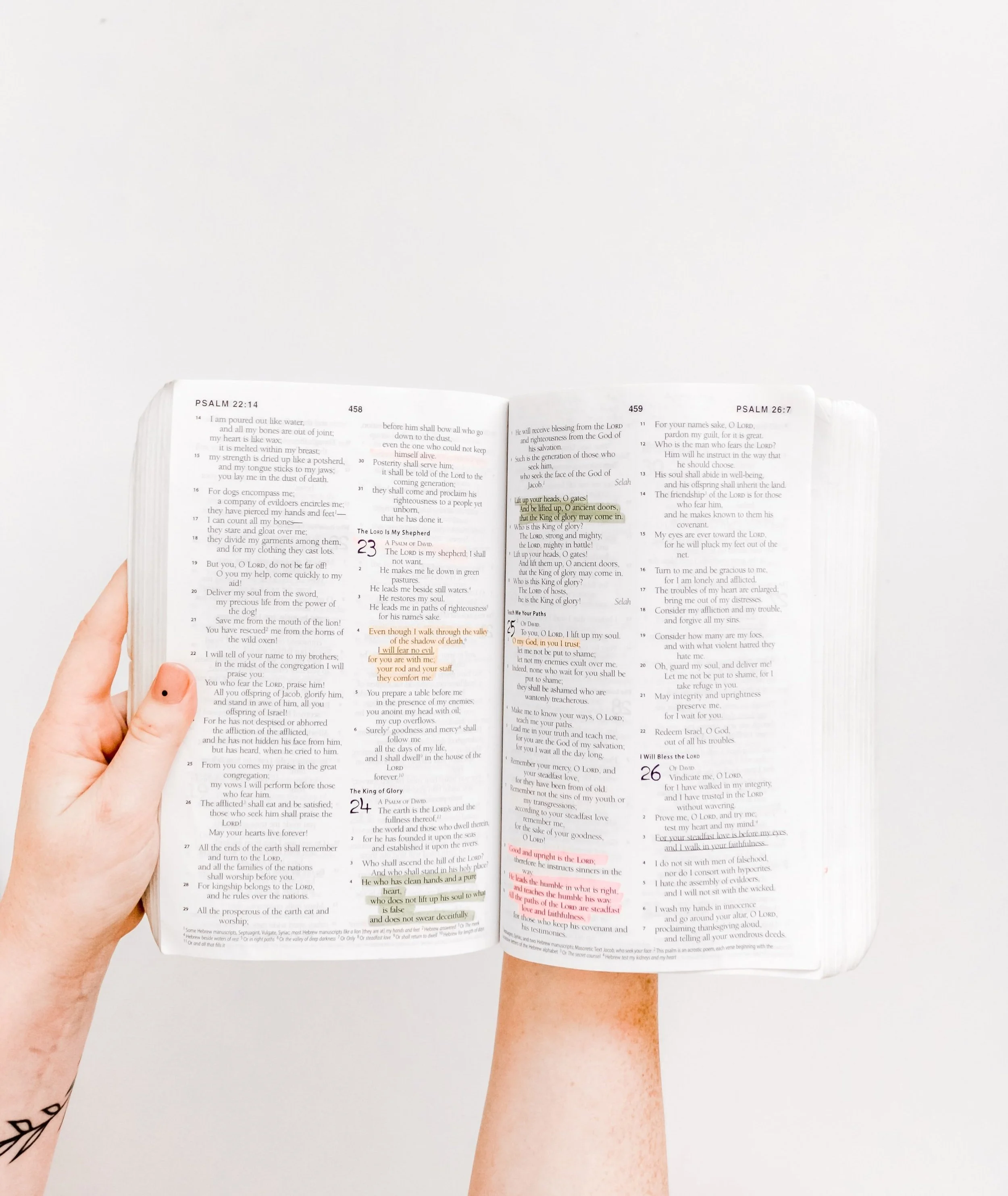The Importance of Vulnerability
Vulnerability is important, and being open with your people has the power to change your relationships.
Our hope is that if you put these 3 questions, 2 scriptures, and 1 challenge into action, the culture of your relationships will change for the better.
3 Questions
#1. What does family mean to you?
#2. How can you build family relationships with people outside of your family?
#3. What would it look like for you to stay when it gets hard?
2 Scriptures
God sets the lonely in families, he leads out the prisoners with singing; but the rebellious live in a sun-scorched land.
Anyone who does not provide for their relatives, and especially for their own household, has denied the faith and is worse than an unbeliever.
1 Challenge
Is there someone in your family that’s in your inner circle, but you haven’t told them that specifically? Or is there someone in your life who has become family to you that you can thank? Call them!
Why vulnerability is so important
Leadership feels lonely. Leadership is lonely.
When we look at Jesus's life, we see that he had his people. We also see that there were a lot of times it seems like he was frustrated with his people. He loved them, he called them friends, and he ministered beside them. But even throughout Jesus’s life, we can see that there is something about leadership that costs us in the way of relationships.
Somebody I know who was in public ministry and leadership once said that her biggest cost in living out the calling that God had put on her life was that she didn't have very many close friends.
And I’m a friend person, so this is the main reason why I was shy about getting into leadership.
One night I realized my calling was clear. The direction and the strategy of that calling in that specific season was becoming very clear to me. I started realizing that living out this calling was going to cost me a lot of time and energy, and it was likely going to affect and change my relationships.
And it did.
On that night I remember crying with some of my friends and praying about that. Whatever I was headed into, I had no idea. And a lot of those friendships lasted, but a lot of them didn’t.
Shame and pain
Research shows that there are two main reasons that we guard ourselves against other people. These two reasons are more prevalent in leadership than they are in real life.
As leaders, we’re quicker to guard ourselves than everybody else because there's more on the line.
Shame and pain. These are the barriers to close relationships. These are the two things that keep us from connecting with people most often. When I headed into the project of writing Find Your People, I realized that my biggest barrier was that I didn’t want to need people.
Here’s the thing, we’re relational because God is relational. And God built us. He knew that life would be most full in a relationship with him first, and then in a relationship with others second. In that order.
But today, our walls are up. We've been distanced from each other. We've had to wear masks. We've had to separate and we've had to isolate. With the nature of what we've been through, we’re more isolated than we've ever been.
In Genesis, we see five important patterns of communal living throughout history:
Proximity: they were physically present with each other and with God.
Transparency: they were fully known by God and fully known by each other. They were naked and unashamed.
Accountability: they lived in submission to their God and Creator. They knew him and they walked with him in the garden.
Mission: they were on a mission and they had a clear purpose. God set them in the garden and tasked them with cultivating it. Their job was to take care of the earth and the creatures in it.
Consistency: they were consistent. They had time and margin for each other, and they committed to one another. They stayed.
But, there are two things that break these patterns down every single time. Shame and pain.
In Genesis 3 we see the fall. And almost all five of these things break down.
The enemy, in the form of a serpent, comes to Eve and questions God's sovereignty. Then, Adam and Eve both rebel against God and they eat from the tree of the knowledge of good and evil. The fall comes, and sin enters the story. And today, it's still around.
Through the fall, we see a breakdown of these five patterns. We see walls go up between God and man and between God and his creation. We see Adam and Eve hide. They realized they were naked, so they became ashamed.
Shame lives with us and attacks us from the inside out. It affects our relationships because we no longer trust each other. God was always prepared to deal with sin, but people never deal with their shame. They live with it. It’s like the air we breathe, and we don’t even realize it.
Kurt Thompson talks about how shame is the enemy that comes for us, the enemy that stays with us, and we barely even know it's there anymore. It soaks into our pores and it taints our relationships.
The reason we struggle to be in touch with our sins and mistakes is because we’ve been conditioned to live perfectly and to pretend that we’re perfect.
We feel like we have to keep up a pretense that we're “okay”.
When really, we're all struggling. Our struggles are the greatest soil for connection, because that’s when we need each other. When we need something from someone else, this knits us together. This is what creates relationship.
Shame builds a wall. Shame drives Adam and Eve to try to hide from God. They cover themselves with leaves. But God tries to reconnect with them and deliver them from the shame, he wants to build back the relationship he had with them.
God wants to reconnect with us. He wants to deliver us from shame. He wants to build back the relationship that he had with us, but we're hiding.
Romans 8:1 says there is therefore now no condemnation for those who are in Christ Jesus. The blood that Jesus shed for us became payment for our sins so that we can be right with him. He sets us free of shame, sin, and guilt.
We don't have to be ashamed, but we choose it every single day. And we don't even realize we're doing it.
The second reason is pain. There's a reason that we hide, and it's not just shame. It's also because we’ve been hurt. We’ve learned not to share everything with people because they hurt us.
The hardest circumstances that you’ve been through are most likely the ones that are connected to people.
How do we end hiding? How do we stop building walls that separate us?
We can start by accepting these three truths:
People will disappoint you.
You will disappoint people.
We can still do relationships because God never disappoints us.
We can enter into a relationship with God and with others knowing that we're not looking for perfect people. But instead we’re trusting a perfect God, and we know that we will be disappointed, and we will disappoint.
As we grow and change, we’re meant to bump up against each other and to have the rough edges of our lives shaved down because we live together. And we can love and know God more because the people in our lives can remind us of His love.
Hebrews says that we encourage each other as long as it is called today so that our hearts are not hardened by sinfulness (Hebrews 3:13), and we do not give up on meeting together all the more as the day draws near (Hebrews 10:24-25).
It's a vulnerable thing. You will get hurt, but it will be worth it.
Curious for more about the importance of vulnerability?
Grab your copy of Find Your People and download the free book club guide today!




